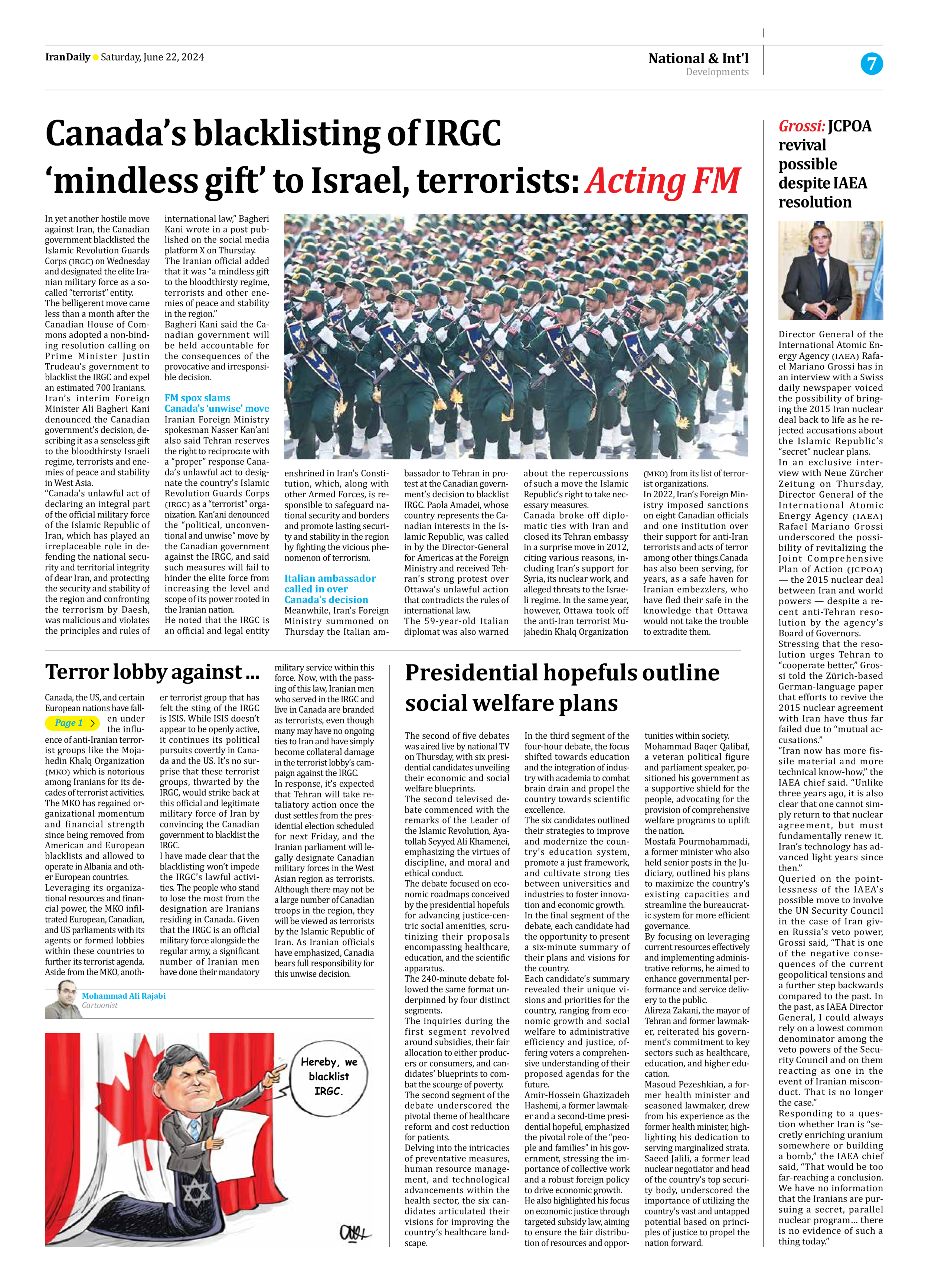
Presidential hopefuls outline social welfare plans
The second of five debates was aired live by national TV on Thursday, with six presidential candidates unveiling their economic and social welfare blueprints.
The second televised debate commenced with the remarks of the Leader of the Islamic Revolution, Ayatollah Seyyed Ali Khamenei, emphasizing the virtues of discipline, and moral and ethical conduct.
The debate focused on economic roadmaps conceived by the presidential hopefuls for advancing justice-centric social amenities, scrutinizing their proposals encompassing healthcare, education, and the scientific apparatus.
The 240-minute debate followed the same format underpinned by four distinct segments.
The inquiries during the first segment revolved around subsidies, their fair allocation to either producers or consumers, and candidates’ blueprints to combat the scourge of poverty.
The second segment of the debate underscored the pivotal theme of healthcare reform and cost reduction for patients.
Delving into the intricacies of preventative measures, human resource management, and technological advancements within the health sector, the six candidates articulated their visions for improving the country’s healthcare landscape.
In the third segment of the four-hour debate, the focus shifted towards education and the integration of industry with academia to combat brain drain and propel the country towards scientific excellence.
The six candidates outlined their strategies to improve and modernize the country’s education system, promote a just framework, and cultivate strong ties between universities and industries to foster innovation and economic growth.
In the final segment of the debate, each candidate had the opportunity to present a six-minute summary of their plans and visions for the country.
Each candidate’s summary revealed their unique visions and priorities for the country, ranging from economic growth and social welfare to administrative efficiency and justice, offering voters a comprehensive understanding of their proposed agendas for the future.
Amir-Hossein Ghazizadeh Hashemi, a former lawmaker and a second-time presidential hopeful, emphasized the pivotal role of the “people and families” in his government, stressing the importance of collective work and a robust foreign policy to drive economic growth.
He also highlighted his focus on economic justice through targeted subsidy law, aiming to ensure the fair distribution of resources and opportunities within society.
Mohammad Baqer Qalibaf, a veteran political figure and parliament speaker, positioned his government as a supportive shield for the people, advocating for the provision of comprehensive welfare programs to uplift the nation.
Mostafa Pourmohammadi, a former minister who also held senior posts in the Judiciary, outlined his plans to maximize the country’s existing capacities and streamline the bureaucratic system for more efficient governance.
By focusing on leveraging current resources effectively and implementing administrative reforms, he aimed to enhance governmental performance and service delivery to the public.
Alireza Zakani, the mayor of Tehran and former lawmaker, reiterated his government’s commitment to key sectors such as healthcare, education, and higher education.
Masoud Pezeshkian, a former health minister and seasoned lawmaker, drew from his experience as the former health minister, highlighting his dedication to serving marginalized strata.
Saeed Jalili, a former lead nuclear negotiator and head of the country’s top security body, underscored the importance of utilizing the country’s vast and untapped potential based on principles of justice to propel the nation forward.







